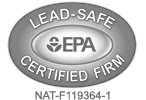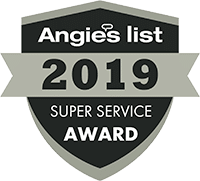Simple Energy Audit Steps to Improve HVAC Efficiency
Your cooling and heating system is probably the most energy-intensive piece of equipment in your home. According to the U.S. Energy Information Association, cooling and heating account for nearly half of the energy expenses in an average American household. This expenditure exceeds even the growing consumption of energy by modern electronics and appliances. However, by maintaining your HVAC system properly, you can boost its efficiency and cut down on your cooling and heating costs drastically. Becoming more energy efficient does not have to be a strenuous chore. Here are seven of the possible steps you can take to maximize the efficiency of your HVAC unit.
1. Invest in a Smart Thermostat
One way you can increase your HVAC’s efficiency is by installing a programmable thermostat in your home. Altering your home’s temperature by even a few degrees can make a significant difference in your monthly cooling and heating bills. Some modern thermostats are built to monitor the habits of your household. With a smart thermostat that automatically adjusts the temperature when the occupants are asleep or away from home, you can enhance the efficiency of your HVAC without any extra effort.
A thermostat with Wi-Fi capability will enable you to access the settings of your HVAC unit remotely. That means you can monitor your present schedule and make some alterations using your smartphone. This device will also help you prepare your home for your family’s arrival by adjusting the temperature as you approach your residence. Of course, you can also set your thermostat manually to change the temperature at a certain time of the day.
2. Use Household Fans to Circulate Air
In the midst of summer, hot air collects and stagnates in your rooms, causing your air conditioner to use more energy to cool your house. On the other hand, during winter, the energy goes toward heating some parts of your home that nobody uses. The attic is a good example. All you need to do is to get the air moving. Regardless of the season, portable plug-in fans or ceiling fans will help distribute the air in an effective way that will save on cooling and heating costs.
Although household fans create a comfortable cooling sensation on the skin in summer, they don’t actually cool down a room. Therefore, if you are using fans in empty rooms, you are wasting a lot of energy. Ceiling fans should rotate in a counterclockwise motion to create the cooling downdraft. During winter, you need to reverse the fans’ direction and run them at a relatively low speed to redistribute the warm air that typically collects close to the ceiling. If you follow these rules, you will be using your household fans effectively.
3. Change Your Filters
Many homeowners understand that they need to clean or change their air filters regularly. However, most of them don’t know the filter’s significance in boosting the HVAC unit’s overall efficiency. Your air filters prevent debris, dirt and other allergens from making it to your indoor air. With time, the blocked pollutants accumulate on the filters. That means your unit will have to work extra hard to push the clean air out.
Failing to change your air filters will lead to poor air quality and decreased HVAC efficiency in the long run. Many experts recommend changing an air conditioner’s air filters every 90 days on average. However, if a family member has allergies or you have pets, you might need to change the filters more often.
4. Install an Economizer
An economizer is a piece of equipment that’s attached to an air conditioning unit to ensure its optimum efficiency. It is a simple solution that takes advantage of cooler outdoor temperatures. When appropriate, an economizer brings cooler air into a building’s interior to avoid the necessity of having to cool warm air in that space by automatically increasing the load on the HVAC’s compressor. It functions by employing logic controllers and sensors, and it is triggered whenever the thermostat dictates lowering the interior temperature but the outdoor air is actually cooler. Internal dampers are used to control the amount of filtered external air that is let in. Economizers are often found in commercial HVAC systems; however, residential models are available. On average, installing an economizer can save your home approximately 30% in energy expenses.
5. Locate and Seal Leaky Ductwork
If your ductwork is leaking, you might be wasting lots of energy cooling and heating your attic. If you see tell-tale signs of dirt and dust around your vents or some rooms are getting cooler or hotter than others, you might have leaking air ducts.
Scheduling an HVAC professional to assess your duct sealing can help you know if you are losing airflow through the ductwork. The technicians will perform pressure tests to verify this issue and then seal every junction and joint in your home to prevent airflow loss.
6. Close Up Your Home
Small gaps in your house allow your HVAC system’s heated or cooled air to escape. Consequently, the equipment will have to work harder to maintain a temperature that keeps your home comfortable. One of the most common ways to boost your HVAC unit’s efficiency is to insulate and seal your home. Check your home for any gaps around your doors, windows, chimney or electrical plates.
These small gaps can be fixed by applying caulk or placing some weatherstripping beneath the doors to block any cold drafts. You can also use foam gaskets to block the loss of conditioned air from electrical switches and outlets. Ensure that you also keep all your doors and windows closed whenever your air conditioner is running. By insulating your home, you can improve your cooling and heating costs by as much as 20%.
7. Keep Up With Your HVAC’s Routine Maintenance
It might seem tempting to put off your HVAC system’s preventative maintenance schedule, particularly if you have a busy life. However, regular maintenance can considerably affect the energy efficiency of your home. A proper tune-up can help your HVAC unit last longer while saving you a lot of money in both repairs and monthly utility costs.
During a routine maintenance visit, your HVAC technician will perform important tasks such as checking the refrigerant levels, calibrating the HVAC unit and cleaning the components. The technician might also make some recommendations on how to keep your HVAC unit clean.
Conclusion
These are just some of the many energy-saving tips that you can implement to boost your HVAC unit’s efficiency. Changing your air filters regularly, investing in a smart thermostat, using household fans, sealing your residence and keeping up with your HVAC’s maintenance can boost your comfort while also reducing your home’s energy expenditure. If you live in Seattle, Tacoma or the Puget Sound area and realize that your HVAC unit is not working properly, contact Brennan Heating & Air Conditioning today to discuss these topics further. We’ve been serving this community for over 30 years.
Our HVAC technicians can perform an energy audit for your residence and recommend suitable solutions according to your needs and budget. We also offer various other services, including installation, repair and maintenance of heat pumps, air conditioners, furnaces, boilers and water heaters. If you’d like us to assist you with any aspect of your HVAC equipment or home comfort needs, call and schedule an appointment. We’d be happy to help.







